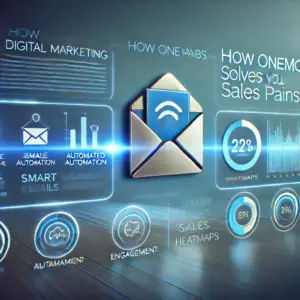Introduction to ChatGPT for Sales
In the rapidly evolving world of sales, staying ahead means leveraging the latest in technology. ChatGPT, a variant of the Generative Pre-trained Transformer models, is revolutionizing how sales development representatives (SDRs) and sellers engage with prospects and enhance their sales strategies. Understanding the capabilities of ChatGPT and integrating it into sales processes can significantly boost efficiency and outcomes.
At its core, ChatGPT is designed to understand and generate human-like text based on the input it receives. This ability makes it an invaluable tool for crafting personalized outreach messages, responding to customer inquiries in real-time, and automating parts of the sales process that traditionally required manual intervention. The power of ChatGPT lies in its flexibility and adaptability, enabling sales professionals to tailor interactions to the specific needs and interests of each prospect.
The benefits of integrating ChatGPT into sales processes are manifold. For starters, it can significantly reduce the time SDRs and sellers spend on routine tasks, such as drafting emails or qualifying leads. This efficiency gain allows sales professionals to focus more on building relationships and closing deals. Additionally, ChatGPT can help in increasing engagement rates through personalized and relevant communications, driving higher conversion rates and ultimately, revenue.
Understanding ChatGPT’s Capabilities
- Natural Language Understanding (NLU) and Generation (NLG): ChatGPT can comprehend and produce text that feels genuinely human, making interactions seamless and natural.
- Personalization at Scale: It can analyze vast amounts of data to generate personalized messages, addressing each prospect’s unique needs and interests.
- Real-Time Interaction: With the ability to respond instantaneously, ChatGPT can simulate real-time conversations, providing immediate value to prospects and customers.
Benefits of ChatGPT in Sales Processes
- Efficiency and Productivity: By automating routine tasks, sales teams can allocate more time to strategic activities that drive sales.
- Enhanced Customer Experience: Personalized and timely interactions facilitated by ChatGPT can lead to higher satisfaction and loyalty.
- Data-Driven Insights: ChatGPT’s ability to analyze and learn from interactions provides valuable insights for refining sales strategies and improving outcomes.
Setting Up ChatGPT for Sales Success
Following an insightful introduction to the capabilities and benefits of ChatGPT in sales processes, it’s crucial to dive into the practical steps of setting up ChatGPT for sales success. This involves choosing the right platform for integration, training ChatGPT with your sales data, and customizing responses for different sales scenarios. Each step is pivotal in harnessing the full potential of ChatGPT to enhance your sales strategy.
Choosing the Right Platform for Integration
Identifying the most compatible platform for ChatGPT integration is the first step towards sales success. The platform should not only support seamless integration with ChatGPT but also align with your existing sales software and CRM systems. This compatibility ensures that ChatGPT can effectively communicate with your sales database, providing real-time insights and assistance. Platforms such as OneMob offer a conducive environment for such integrations, enabling sales development representatives (SDRs) and sellers to leverage ChatGPT’s capabilities to the fullest.
Training ChatGPT with Your Sales Data
Customizing ChatGPT to understand your specific sales context involves training it with your sales data. This process enhances ChatGPT’s ability to provide relevant and accurate responses tailored to your business needs. Importing historical sales data, customer interactions, and common queries allows ChatGPT to learn the nuances of your sales process, making it more efficient in handling inquiries and assisting the sales team. Remember, the quality of the training data directly influences ChatGPT’s performance, so ensure it’s comprehensive and up-to-date.
Customizing Responses for Different Sales Scenarios
Equipping ChatGPT with the ability to handle various sales scenarios requires thorough customization of its responses. This step is crucial in ensuring that ChatGPT can effectively engage with prospects and clients across different stages of the sales funnel. By defining a range of scenarios—from initial outreach to handling objections and closing deals—you can prepare ChatGPT with tailored responses that resonate with the prospects’ needs. Utilizing a tool like OneMob for creating engaging no-code microsites can complement ChatGPT’s customized responses, enhancing the overall sales experience for your prospects.
Through careful selection of integration platforms, meticulous training with sales data, and strategic customization of responses, SDRs and sellers can set up ChatGPT for remarkable sales success. Each step is integral to ensuring that ChatGPT functions as a powerful extension of the sales team, capable of driving engagement, qualifying leads, and ultimately, contributing to revenue growth.
Advanced ChatGPT Sales Strategies
In the journey of setting up ChatGPT for sales success, the next frontier involves leveraging its capabilities for more advanced strategies. These strategies include lead generation and qualification, enhancing customer engagement, integrating ChatGPT into your CRM for streamlined workflows, and finally, measuring and optimizing its impact on sales performance.
Leveraging ChatGPT for Lead Generation and Qualification
ChatGPT can revolutionize how sales teams approach lead generation and qualification. By automating initial conversations, ChatGPT can quickly gather essential information about potential leads, scoring them based on predefined criteria. This allows sales representatives to focus on high-quality leads, significantly reducing time spent on unproductive prospects. Furthermore, ChatGPT’s ability to learn from interactions enables it to predict the likelihood of a lead converting, providing sales teams with invaluable insights for prioritizing their efforts.
Using ChatGPT to Enhance Customer Engagement
Customer engagement is pivotal in the sales process. ChatGPT can be utilized to send personalized follow-ups and content recommendations based on previous interactions, thereby increasing the chances of conversion. Its 24/7 availability ensures that customer inquiries are addressed promptly, creating a positive impression and building trust. Moreover, ChatGPT can analyze customer feedback in real-time, offering sales teams insights into customer preferences and concerns, which can be used to tailor the sales approach further.
Incorporating ChatGPT into Your CRM for Streamlined Sales Workflows
Integrating ChatGPT into your Customer Relationship Management (CRM) system can significantly streamline sales workflows. This integration enables automated data entry, reducing the risk of human errors and freeing up time for sales representatives to focus on selling. ChatGPT can also provide real-time insights and recommendations based on the CRM data, helping sales teams make informed decisions quickly. Additionally, by automating routine follow-ups and scheduling, ChatGPT ensures that no lead is forgotten, improving the overall efficiency of the sales process.
Measuring and optimizing ChatGPT’s impact on sales performance is crucial for continuous improvement. By analyzing metrics such as engagement rates, conversion rates, and customer satisfaction scores, sales teams can identify areas where ChatGPT is excelling and where there is room for improvement. Continuous training of ChatGPT with updated sales data and feedback will ensure that it remains an effective tool for achieving sales goals.
Implementing these advanced strategies requires a thoughtful approach, but the payoff can be substantial. By harnessing the power of ChatGPT, sales teams can not only improve efficiency and effectiveness but also gain deeper insights into customer behavior and preferences, setting the stage for sustained sales success.
Real-world Examples of ChatGPT in Sales
In the fast-evolving landscape of sales, ChatGPT has emerged as a game-changer for businesses seeking to innovate and enhance their sales processes. From automating customer interactions to generating insightful sales reports, the applications of this AI technology are vast and varied. Let’s delve into some real-world examples where companies have leveraged ChatGPT to dramatically improve their sales outcomes, and peek into the future trends in AI and sales automation.
Case Studies of Success with ChatGPT
One notable example is a leading e-commerce platform that integrated ChatGPT to manage customer inquiries and provide personalized shopping advice. This move not only reduced response times from hours to minutes but also increased customer satisfaction rates by 30%. Another case involves a software company that used ChatGPT to qualify leads through interactive conversations, leading to a 20% uplift in qualified lead generation. These examples underscore the potential of ChatGPT to transform sales processes by making them more efficient and customer-centric.
Enhancing Customer Engagement
Companies across various sectors are discovering that ChatGPT can significantly enhance customer engagement. For instance, a financial services firm implemented ChatGPT to provide instant, 24/7 financial advice to its clients, resulting in a marked increase in client retention. Similarly, a real estate agency employed ChatGPT to answer property queries and schedule viewings, which not only streamlined operations but also improved the customer experience. These instances highlight how ChatGPT can be an indispensable tool in building and maintaining strong customer relationships.
Future Trends in AI and Sales Automation
The future of sales lies in the seamless integration of AI technologies like ChatGPT with existing sales workflows. Emerging trends suggest a move towards more predictive sales analytics, where ChatGPT could help forecast sales trends and identify opportunities. Moreover, the potential for hyper-personalized customer interactions based on deep learning insights could redefine the standards of customer engagement. As these technologies continue to evolve, businesses that adopt and adapt to these trends will likely stay ahead in the competitive landscape of sales.
In reflecting on the transformative role of ChatGPT in sales, we’ve ventured through real-world examples demonstrating its prowess in revolutionizing sales strategies. The advent of AI and sales automation, as evidenced by these case studies, is not just a fleeting trend but a cornerstone of future sales methodologies. The key takeaway is the unparalleled efficiency and personalization that ChatGPT brings to sales processes, offering a glimpse into a future where sales and technology are inextricably linked.
Embracing ChatGPT in your sales strategy is not merely about staying ahead of the curve; it’s about redefining the curve. The versatility of ChatGPT, from generating personalized outreach messages to providing real-time customer service and sales analytics, illustrates the breadth of its capabilities. It’s essential to recognize that the power of ChatGPT lies not just in automating tasks but in enhancing the human element of sales. This is where the true potential for increasing outreach and qualifying more leads lies, making tools like OneMob not just useful but indispensable in the modern sales toolkit.
We encourage you to experiment with ChatGPT within your sales strategies. Start small, perhaps by automating repetitive tasks or enhancing customer interactions, and gradually integrate more sophisticated applications as you witness the benefits unfold. Remember, the goal is to augment your sales efforts, making them more efficient and effective, while also personalizing the buyer’s journey. As we move forward, staying informed and adaptable to these technologies will not only ensure competitiveness but will also pave the way for unprecedented sales success.





